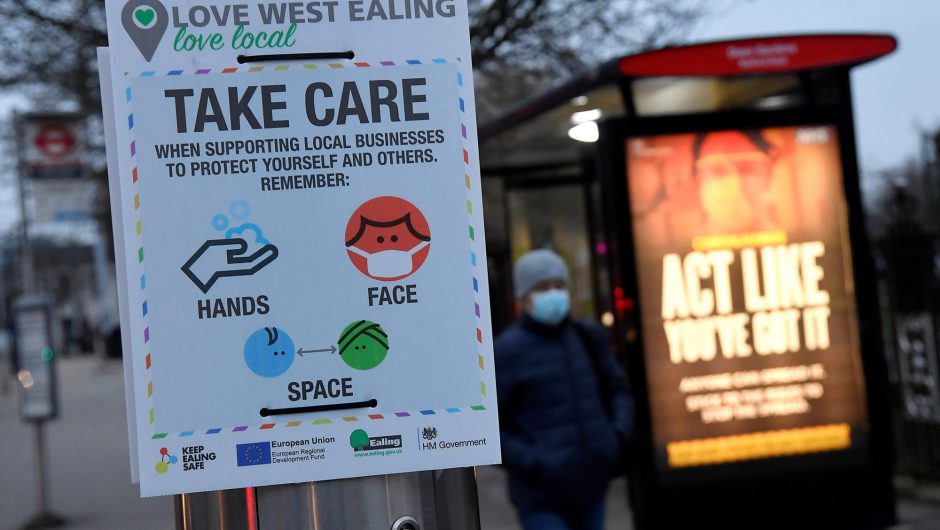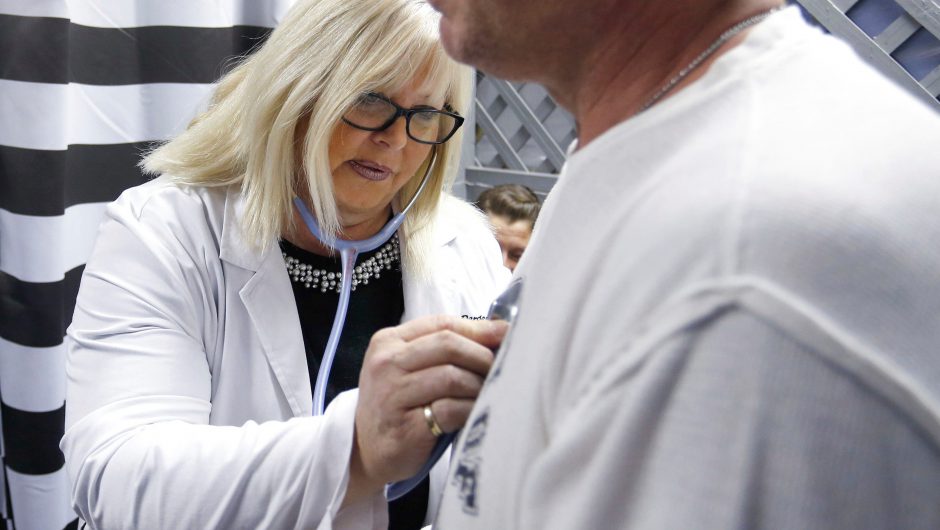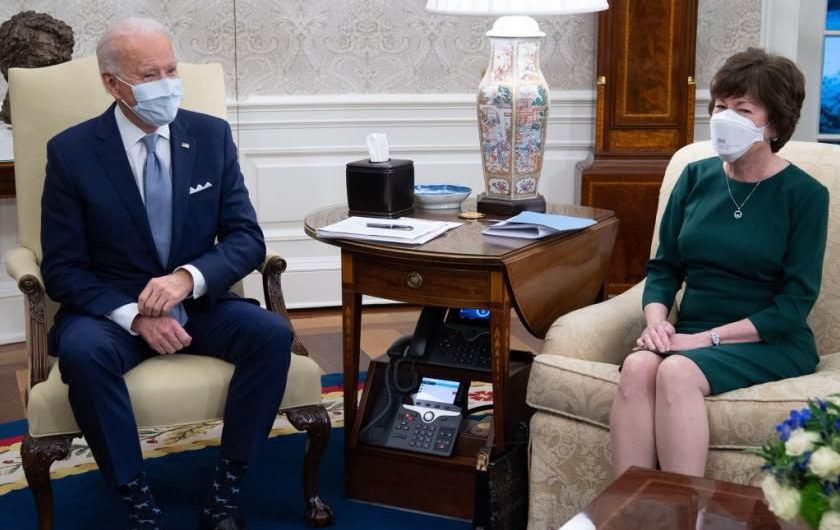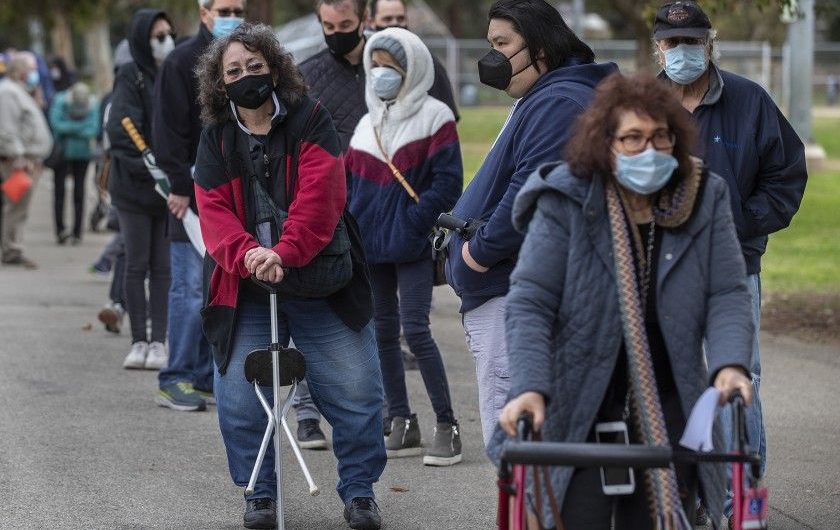[ad_1]
IRS checks began hitting bank accounts this week, and Americans will make different choices about how to use the money aimed at relief amid the coronavirus pandemic. One possibility: Book a vacation package, when such activity can resume.
Scott Eherts and eight of his friends received checks this week and almost immediately purchased flights to Singapore and Bali for September – hoping to be in town for the Singapore Grand Prix on Sept. 20.
Before thinking about traveling, financial advisers cautioned, make sure you don’t have more pressing priorities, such as buying food, paying rent or paying bills.
“It’s important to address your immediate expenses,” said Katie Warchol, a financial adviser with Edward Jones in St. Louis.
And that’s just one thing to keep top of mind. Here’s a look at what travelers should know before they spend IRS checks on travel.
Staying Apart, Together: A newsletter about how to cope with the coronavirus pandemic
‘The future is uncertain’
Warchol said it’s a good idea to build up an emergency fund if you don’t already have one, or add to it if you do. She suggested three to six months of cash.
“You might have a job now,” she said, but “the future is uncertain.”
After that, she said, you can consider taking that vacation.
“If you feel financially stable and your immediate needs are taken care of, let’s talk about what other goals you might have,” Warchol said.
Itching to travel? Do these 5 things now, so you’ll be ready to go when coronavirus restrictions ease
Check airline policies
What would the tax relief check buy you? Individuals making up to $75,000 are set to receive $1,200. Couples who make up to $150,000 get $2,400.
Eherts, 23, from Stamford, Connecticut, received the full $1,200 government stipend. He plans to use a combination of points and the whole check for the trip since one of his friends lives in Singapore and he’s been meaning to visit.
Eherts paid $682 for a round trip on United Airlines from the USA to Singapore and $68 round trip from Singapore to Bali; he estimated that’s about half of what the fare is normally and told USA TODAY he “couldn’t pass up the opportunity.”
Story continues
What if the trip can’t go on as planned? “If we have to postpone, we’d certainly be bummed, but not the end of the world,” Eherts said.
Airlines have relaxed their cancellation and change fees in an effort to coax travelers back since their business is so far down. The IRS checks can go a long way with the deals airlines offer.
Should you buy?: It’s a buyer’s market for travel deals during coronavirus fallout
Tripadvisor maintains a page with information on airline change and cancellation policies, as well as an air travel forum where travelers can exchange information.
Elizabeth Monahan, a spokeswoman for Tripadvisor, recommended checking directly with the airlines to see what restrictions apply.
“Policies vary by carrier, so it’s always best to visit your airline’s COVID-19 resource pages directly for the most up-to-date information and guidance,” she said.
Should you leave the USA?
Monahan also recommended checking the Centers for Disease Control and Prevention’s travel FAQ page, which is updated regularly. Though the CDC recommends against nonessential travel right now, or any travel abroad, it will advise when it is safe to travel again. The State Department issues travel advisories for specific foreign countries.
Singapore had more than 8,000 coronavirus cases as of Monday, according to Johns Hopkins data.
John McDonnell can’t wait to travel again, even if it has to be domestically for now.
“The first thing I’m doing is jumping on a plane to D.C. to soak up all the food, culture museums, zoo, shopping and architecture I can,” the 41-year-old from Wilmington, North Carolina, told USA TODAY. He received his $1,200 check on April 14 and plans to take a direct flight from Wilmington. He anticipated spending about $2,000 over four days.
“Travel is my favorite thing to do in the world – feeds my soul,” he said.
He’s had to cancel trips to London and Cleveland as a result of the coronavirus and plans to book a trip to Europe once it’s safe to go back.
Stay up-to-date on travel rules by state, event cancellations
If you travel domestically, make sure you know what you’re getting into as some states require travelers to self-quarantine. Bear in mind events you wanted to attend, even well into the future, may no longer be happening or are postponed.
Michael McGuckin, a retired educator (and self-described “professional grandfather”) planned on using his check to help with hotel expenses for a family trip to San Diego in mid-July before Comic-Con, which was canceled Friday.
The Flanagan, Illinois, resident had three hotel rooms reserved at a Hilton property for a weeklong trip. His 8-year-old granddaughter was excited about visiting the San Diego Zoo, Sea World and the beach.
Now that the event is canceled, the trip is probably a no-go. They plan to save the money and use it for future travel.
Consider upgraded trip insurance
Another important consideration for when travel resumes in the wake of coronavirus: Standard travel insurance policies do not cover you if you decide not to travel because of the pandemic. A cancel-for-any-reason policy will cost more but gives you more protection.
The U.S. Travel Insurance Association recommends its member companies, which adhere to the group’s standards. You can also compare companies to find out which one offers a policy that best fits your needs.
Heads up: My cruise was canceled because of coronavirus. Here’s how experts say you should navigate refunds, credits
Noted: Most people aren’t staying at hotels during coronavirus. Here’s how they’re filling rooms anyway.
This article originally appeared on USA TODAY: IRS check slated for travel? What to know amid coronavirus
[ad_2]
Source link








